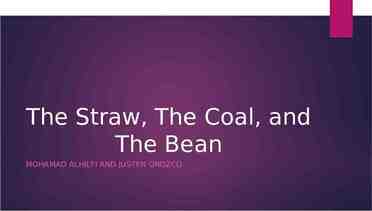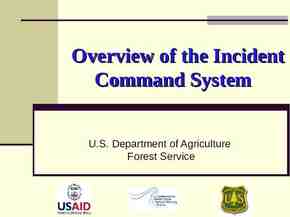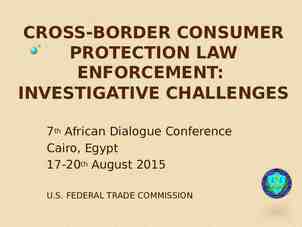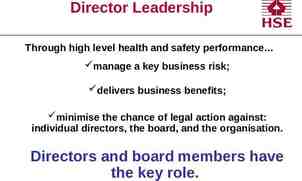Office of Social Justice, Inclusion, and Conflict Resolution
26 Slides8.03 MB

Office of Social Justice, Inclusion, and Conflict Resolution

Understanding and Appreciating Others A ProfTalk prepared by the Office of Social Justice, Inclusion, and Conflict Resolution

Who Are You?

Who Are You?

NO ONE IS AN ISLAND Because no one is an island, as Rowan PROFS we invite you to understand and appreciate others’ different personal and social identities.

I DON’T SEE COLOR!

Inclusive Diversity and Social Justice As students who are part of our community at Rowan, you are invited to develop awareness, understanding, and proficiencies geared at valuing diversity and creating a truly inclusive and socially just environment that allows ALL students regardless of ability, class, gender, gender identity, race, religion, and sexual orientation, etc. the opportunity to be themselves and participate fully in our community at Rowan. Deep Enactment of Inclusive Diversity is Social Justice Practice: Self Awareness/Understanding of Social Identities Understanding your students and their experiences Understanding how your identities and that of your students fit within multiple systems of inequity. Actively working to increase one’s awareness/understanding while supporting the creation of socially just spaces

DO SEE COLOR! Diversity is the SPICE of life!

Equality vs. Equity Equality Sameness, Equality is about Sameness, it promotes fairness and justice by giving everyone the same thing. But it can only work IF everyone starts from the SAME place, in the previous example equity only works if everyone is the same height. Equity Fairness or social justice Equity is about FAIRNESS, it’s about making sure people get access to the same opportunities. Sometimes our differences and/or history, can create barriers to participation, so we must first ensure EQUITY before we can enjoy equality. For Example: Equal marriage rights have been granted but there are states where the legislature doesn’t' protect LGBT people from being unfairly fired, not hired, or discriminated against in the workplace or that don’t protect LGBT students from being bullied by other students, teachers, and school staff, and don’t prevent LGBT people from being unfairly denied health coverage or services in private insurance plans. http://thinkprogress.org/lgbt/2015/06/26/3674363/lgbt-equality-policies/

Equality vs. Equity

Systemic Barrier Removed

Inclusion is the active, intentional, and ongoing engagement with diversity—with people, in your coursework, in activities outside of the classroom, and in the community that you create for yourself at Rowan—in ways that increase your awareness, content knowledge, cognitive sophistication, and empathic understanding of the complex ways individuals interact with one another.

Cultural Competence Cultural Competence alludes to our ability to function within a body of people that have a shared sense for communicating and living with one another based on common values, language, and customs. The individual has the ability to problem solve and navigate the nuances of a particular “neighborhood” that includes beliefs and norms that cultivates identity formation and everyday experiences. In that respect we develop the competencies within the context of the community that we are immersed in to actualize personal and collective life goals. Cultural Competency then means having the capacity to understand and competently navigate the systems that define another culture. To be Multicultural Competent, one must be able to traverse their own self-awareness to realize the experiences of persons and communities that are different from him/herself to be fluent in more than one culture. This would entail being able to communicate cross-culturally and have a sense of empathy, a deeper understanding and respect for and ability to work with others as an ally despite the contrasting ethnic, religious, political, gender, historical, and personal constructs that define how a person views and experiences the world (Kivel, 2007).

THREE FACETS OF CULTURAL HUMILITY 1. Lifelong Self-critique 2. Challenge of Power Imbalances 3. Affiliation with Advocacy Groups https://study.com/academy/lesson/cultural-humility-definition-example.html

CULTURAL HUMILITY Cultural humility is one construct for understanding and developing a processoriented approach to competency. Hook, Davis, Owen, Worthington and Utsey (2013) conceptualize cultural humility as the “ability to maintain an interpersonal stance that is other-oriented (or open to the other) in relation to aspects of cultural identity that are most important to the [person]” (p. 2). Three aspects of cultural humility: Lifelong commitment to self-evaluation and self critique (Tervalon & Murray-Garcia, 1998). Underlying this piece is the knowledge that we are never finished — we never arrive at a point where we are done learning. Therefore, we must be humble and flexible, bold enough to look at ourselves critically and desire to learn more. When we do not know something, are we able to say that we do not know? Willingness to act on the acknowledgement that we have not and will not arrive at a finish line is integral to this aspect of cultural humility as well. Understanding is only as powerful as the action that follows. http://www.apa.org/pi/families/resources/newsletter/2013/08/cultural-humility.aspx

FIX POWER IMBALANCES The second feature of cultural humility is a desire to fix power imbalances where none ought to exist (Tervalon & Murray-Garcia, 1998). Recognizing that each person brings something different to the proverbial table of life helps us see the value of each person. When practitioners interview clients, the client is the expert on his or her own life, symptoms and strengths. The practitioner holds a body of knowledge that the client does not; however, the client also has understanding outside the scope of the practitioner. Both people must collaborate and learn from each other for the best outcomes. One holds power in scientific knowledge, the other holds power in personal history and preferences.

DEVELOP PARTNERSHIPS Finally, cultural humility includes aspiring to develop partnerships with people and groups who advocate for others(Tervalon & Murray-Garcia, 1998). Though individuals can create positive change, communities and groups can also have a profound impact on systems. We cannot individually commit to selfevaluation and fixing power imbalances without advocating within the larger organizations in which we participate. Cultural humility, by definition, is larger than our individual selves — we must advocate for it systemically.

FITTING IN One major obstacle faced by all first year students is trying to fit in. Fitting in or feeling included at college can be difficult for most students. Rather than trying to fit in, you are invited be proud of yourself and include others.

Office of Social Justice, Inclusion, and Conflict Resolution Mission The Office of Social Justice, Inclusion and Conflict Resolution exists to promote an inclusive university community where individuals are empowered to grow in their understanding of identity, social justice, and the skills needed to lead a more just society. Areas of Support Dr. Harley E. Flack Student Mentoring Program LGBTQIA Resource Center Multicultural Resource Center Spiritual Exploration Resources Women’s Resource Center ROBINSON HALL ROOM 214

Office of Social Justice, Inclusion, and Conflict Resolution Objectives Provide students and professional staff opportunities to dialogue across difference and develop key social justice and conflict resolution competencies. Create opportunities for students to explore their background and identities and how this exploration is relevant to their college and professional success. Provide programs and services geared at supporting diverse students. Provide college-wide student mentorship programs geared at supporting retention and graduation of underrepresented students. Offer students opportunities for leadership, professional development, and civic engagement. Assess campus climate and provide ongoing feedback and consultation on ways to promote an inclusive campus environment Assist and support efforts to prevent and respond effectively to bias related incidents.

Resource Centers LGBTQIA Resources The LGBTQIA Resource Center is a resource for students who identify and LGBTQIA and is intended to create a safe space for students, support students’ exploration of their identity, and advocate for campus inclusion for the LGBTQA community at Rowan. Multicultural Resources An evolution of the long established Office of Multicultural Affairs, the Multicultural Resource Center is located within the Office of Social Justice, Inclusion, and Conflict Resolution and houses materials for student/faculty use to explore the many facets of multiculturalism and issues surrounding identity development that is influenced by culture, the environment and the social construction of race. The center serves as a resource for students from diverse cultural and identity groups, and is intended to promote the celebration diversity, development cross cultural understanding and competency, and inclusion of diverse people in the Rowan community.

Areas of Student Support Spiritual Exploration Resources The Spiritual Exploration Resource Center is a resource to promote a campus environment that is inclusive of student’s religious and spiritual identities and allows for expression and exploration of spiritual and religious beliefs and values. Programs and initiatives of the center will advance understanding and appreciation of the contributions of communities of faith. Women Resources The Women’s Resource Center is a resource to address the needs of all women and empower students to promote a campus community inclusive of all genders and respectful of gender differences. Programs and initiatives of the center will support efforts to address inequity, promote understanding of women’s and gender issues, and create a space for women to build bridges and a strong sense of community.

Signature Programs Dining for Diversity Patchwork: Feminist Conversation Series AWARRE: Association of Whites Anti-Racist for Racial Equity Social Justice Brown Bag Lunch Series Speak and Eat Conversation Series Multicultural Men’s and Women’s Retreats Intergroup Dialogues Interfaith Dialogues Out and Ally Network Women of Color Collective Social Justice Speakers Series Social Justice Reels Social Justice and Inclusion Workshops SJICR Reads! – Between the World and Black Bodies – Guilt – Maroon Interfaith Council Programing Chats with Chaplains

Affiliated Student Organizations Asian Cultural Association (ACA) African Student Association (ASA) Association of White Anti-Racists for Racial Equity (AWARE) Black Cultural League (BCL) Catholic Campus Ministry Chabad Jewish Student Association Chi Alpha Christian Fellowship Council of African American Studies Hillel International Club Intersectional Feminist Collective Italian Club Lyrical Alliance Rowan Christian Fellowship (Cru) Rowan Rangeela Rowan University Philippine American Coalition (RU PAC) Muslim Student Association National Association for the Advancement of Colored People (NAACP) New Life Ministry Prism Progressive Student Alliance (PSA) Student Organization for Caribbean Awareness (SOCA) Students United for Mentorship and Service True Colors United Latino Association Queer People of Color (QPoC)

Our Professional Staff Tara Ferrucci Administrative Assistant [email protected] Gardy J. Guiteau Phone: (856) 256-5495 Fax: (856) 256-4856 [email protected] Location: Hawthorn Hall – 2nd Floor www.rowan.edu/sjicr Director of Social Justice, Inclusion, and Conflict Resolution Initiatives [email protected] Temple Jordan Assistant Director of Mentoring and Inclusion Programs [email protected] John T. Mills Assistant Director of Multicultural and Inclusion Programs [email protected] JoAnna Murphy Assistant Director of Women’s & Inclusion Programs [email protected]






